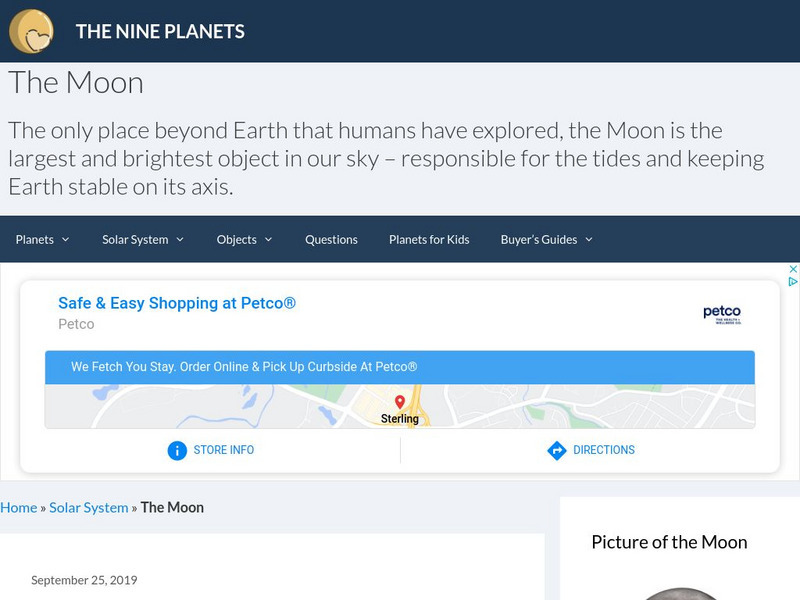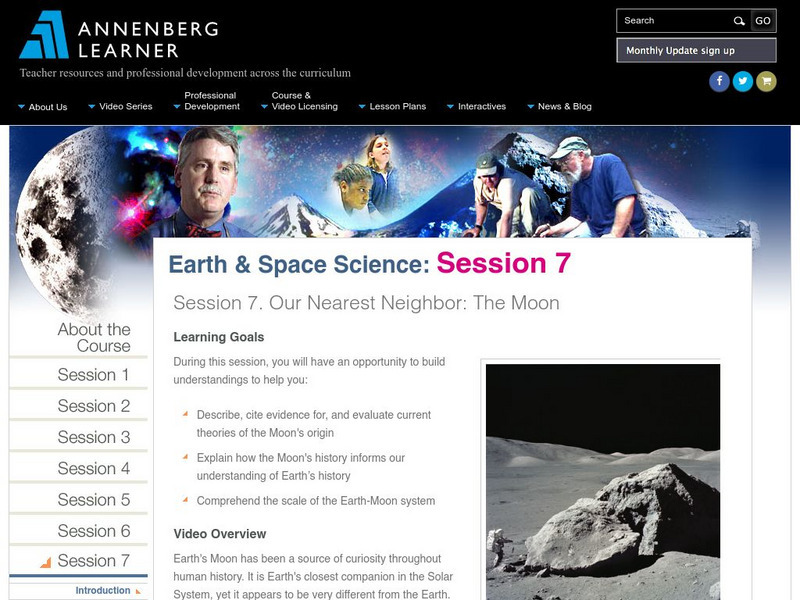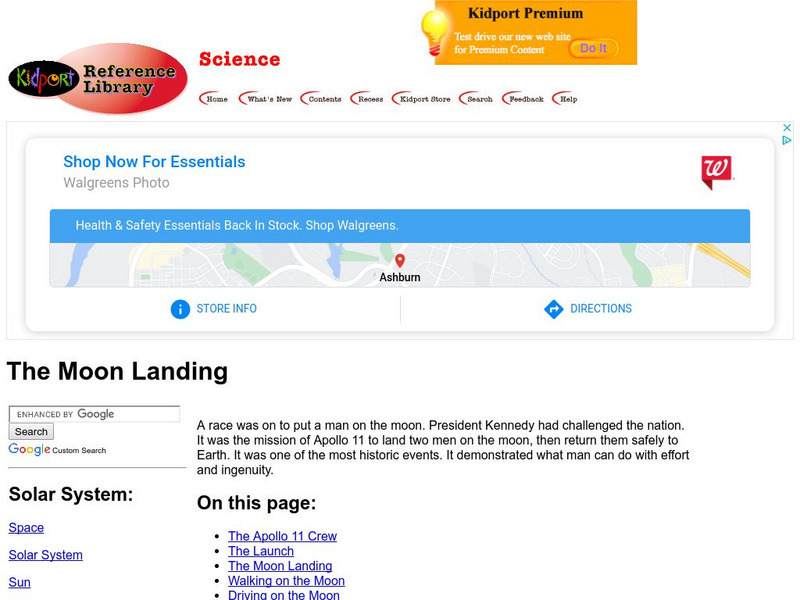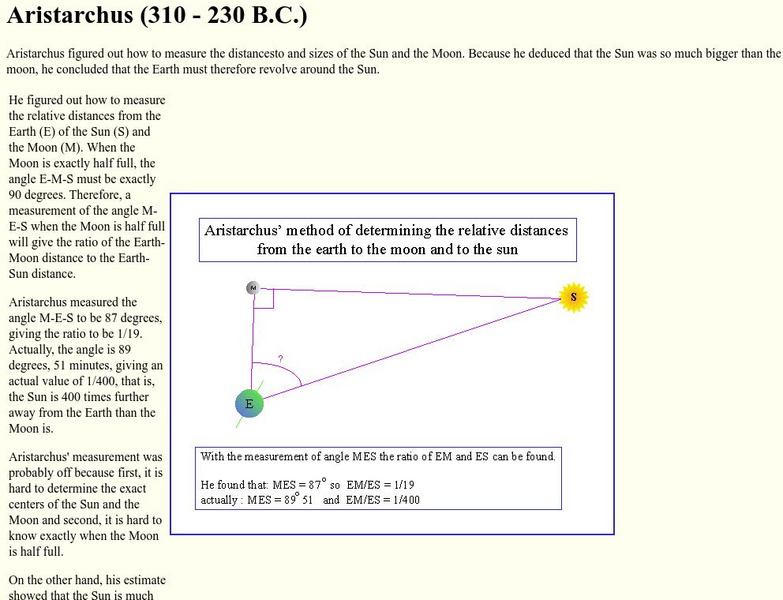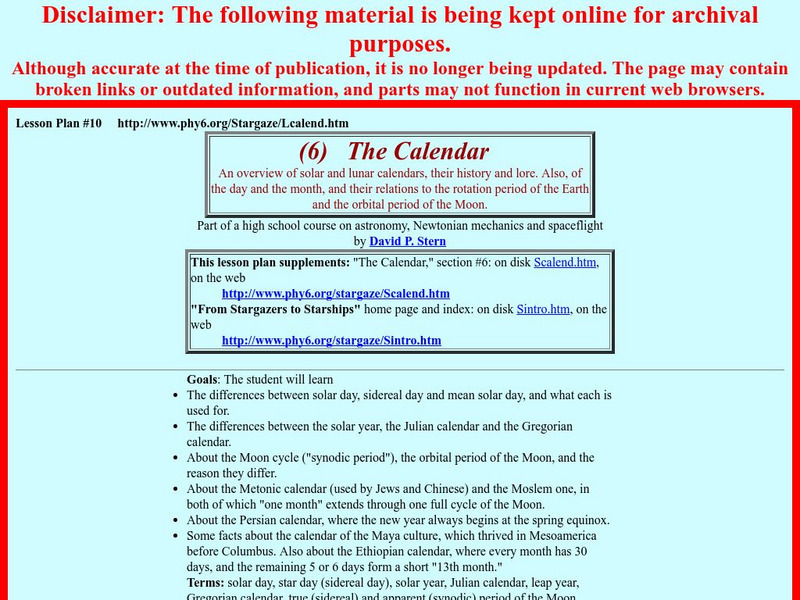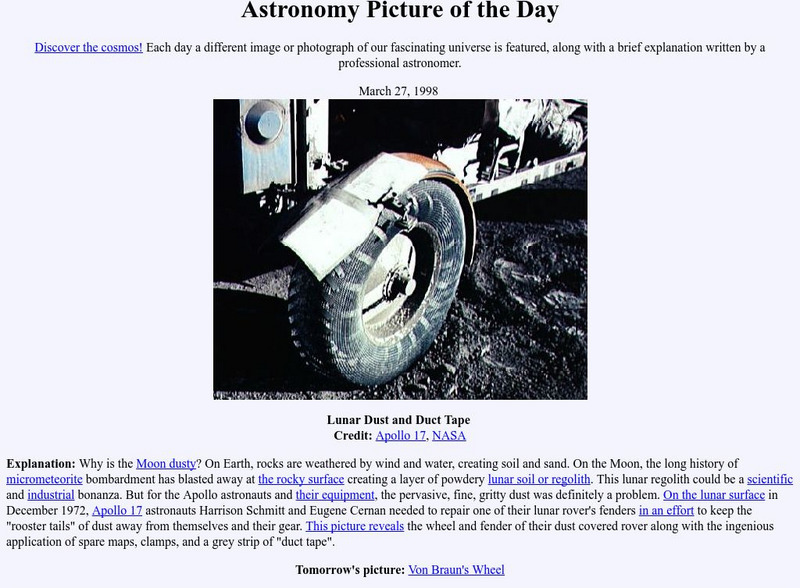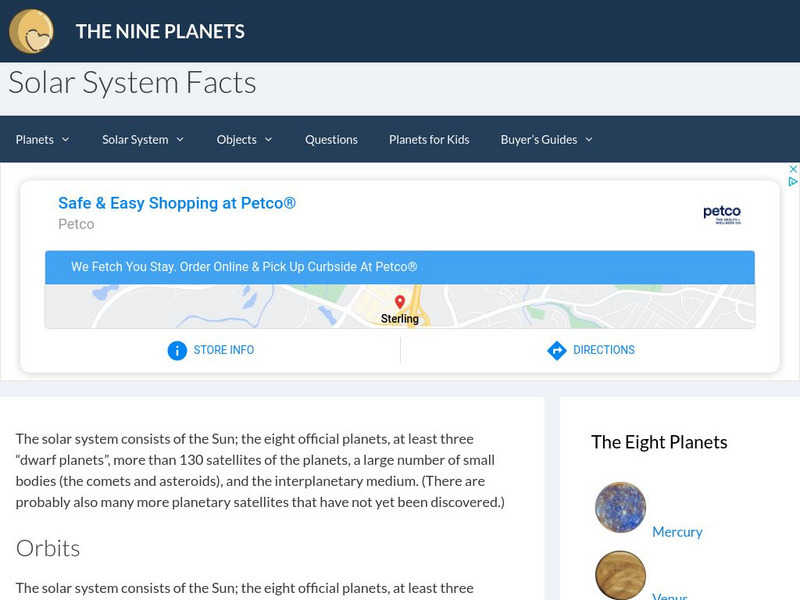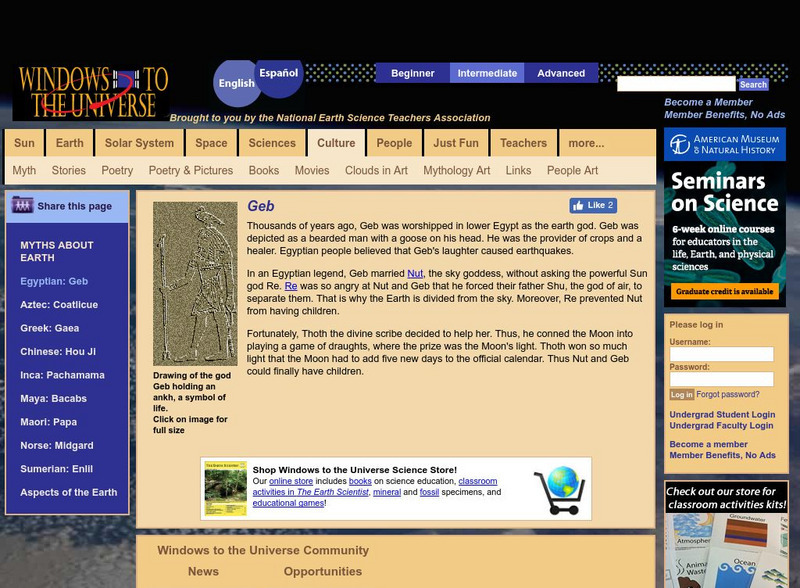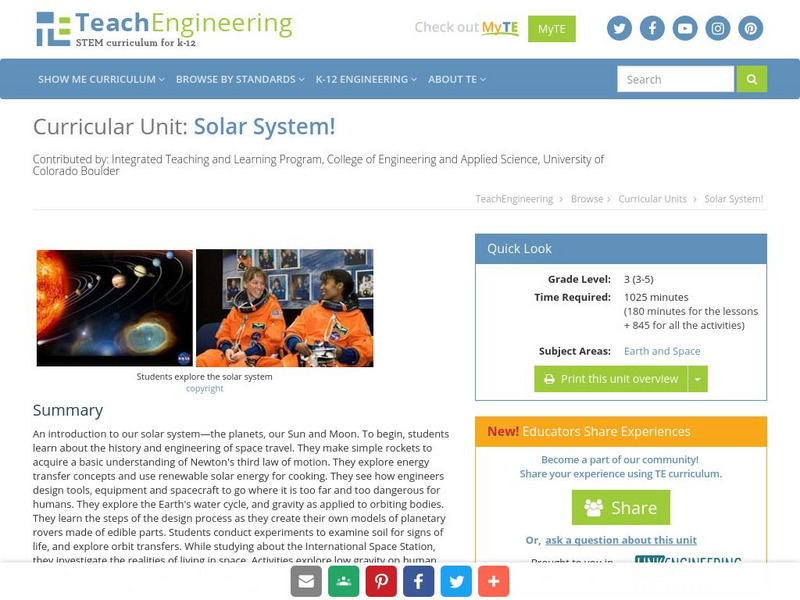Other
Planetary Society: Relative and Absolute Ages in Histories of Earth and the Moon
A lengthy scholarly article that discusses the geologic time scale, its history of development, age-dating events that occurred in different eras, and how absolute and relative dating are used to assess the ages of the Earth and Moon....
Nine Planets
The Nine Planets: Earth Facts
Find lots of information about our planet Earth here. Covers basic facts, Earth's history, layers of the Earth, plate tectonics, composition of the atmosphere, Earth's magnetic field, and some facts about our moon.
Nine Planets
The Nine Planets: The Moon
Explore the mythology, structure, observational history, gravitational force, and orbit of Earth's Moon.
Annenberg Foundation
Annenberg Learner: Earth and Space Science: Our Nearest Neighbor: The Moon
Material to begin an exploration of the Moon, theories about its origin, and its history's relationship to our Earth's history. An hour-long video is accompanied by learning goals, an outline and overview, details on the Moon's movement,...
Other
Historic Wings: "One Small Step" Race to the Moon
"One Small Step, The Race To The Moon" is a clear presentation of the story of the Moon landing program that the United States conducted during the 1960's and early 1970's. After launching the presentation click on the phases of the Moon...
Khan Academy
Khan Academy: Codex Leicester: Fossils/mountains, Moon/tides
An excerpt from Leonardo da Vinci's Codex Leicester. Find out how this "Renaissance man" observed the Earth and learned more about tides, moons, and fossils in the mountains.
Science Struck
Science Struck: How Was the Earth Created
This resource gives a detailed explanation of the stages that the Earth and the solar system went through beginning with their origins in the Big Bang up to the present time.
Annenberg Foundation
Annenberg Learner: Earth and Space Science: The Geologic Timeline
Take this online quiz and test your knowledge of geological history, and the formation of our atmosphere, water, crust, oxygen, tectonic plates, Moon, and the rest of the Earth.
Other
Historic Wings: John Glenn Friendship 7
The story of America's first astronaut to orbit the earth during the Mercury Space program. After launching the program click on continue or on the numbers to learn about the story of the Mercury program and the first American to orbit...
Kidport
Kidport: The Moon Landing
Travel back in history and see the first men on the moon. See photos of the crew, the launch, the landing and more.
American Museum of Natural History
American Museum of Natural History: Ology: Astronomy: In Pictures: Beyond Planet Earth
What would it be like to travel across the solar system and explore space? Take a look at some of the places that humans might go to someday, and the questions that scientists are asking.
Other
Astro Mia: Tierra, Sistema Solar Y Universo
This site is a good resource to study Astronomy. It has six sessions: the Universe, the solar system, the earth and the moon, history of Astronomy, articles, famous astrologers and a glossary.
Cornell University
Cornell University: Astronomy: Aristarchus
This site from Cornell University provides a discussion of how Aristarchus arrived at his conclusions of the distance from the Earth to the Sun and Moon. Also has his methods for determining the size of the Moon and the Sun.
NASA
Nasa: From Stargazers to Starships: The Calendar
A lesson plan that gives an overview of solar and lunar calendars, their history and lore. Also, of the day and the month, and their relations to the rotational period of the Earth and the orbital period of the Moon.For versions in...
NASA
Nasa: Astronomy Picture of the Day: Lunar Dust and Duct Tape
Dust, a common and usually minor problem on Earth, presented a major challenge for the Apollo astronauts on the Moon. Here's an interesting solution created by the Apollo 17 crew.
Nine Planets
The Nine Planets: An Overview of the Solar System
A detailed overview of the history, mythology, and current scientific knowledge of each of the planets and moons in the solar system.
Other
Ellinogermaniki Agogi: Eratosthenes Experiment
A profile of the ancient Greek mathematician, geographer, and astronomer, Eratosthenes. Looks at his many accomplishments, including measuring the circumference of the Earth and the distance to the Moon and the Sun. Includes links to...
Curated OER
The History Place: Apollo 11
Images, text and audio recording of the events surrounding the first landing on the Moon in 1969. Easy access to images and sounds.
Other
Joseph Bruchac Home Page: Joseph Bruchac
This site is Joseph Bruchac's homepage. It provides links to his biography, a listing of his major works, and other online resources for the author. It also provides links to several of his poems to open or download on mp3.
Exploratorium
Exploratorium: Third From the Sun
This site offers a short history of the evolution of the space program and man's quest for more revealing and detailed pictures of the earth.
National Earth Science Teachers Association
Windows to the Universe: Geb
This article outlines the ancient Egyptian myth in which Geb, the Earth god, and Nut, the sky goddess, marry without the approval of the powerful Sun god, Re.
Khan Academy
Khan Academy: How Our Solar System Formed
An article describing how the sun, planets, moons, and beyond Pluto was formed. Learn more about the beginning of our solar system.
TeachEngineering
Teach Engineering: Solar System!
An introduction to our solar system: the planets, our Sun and our Moon. Students begin by learning the history and engineering of space travel. They make simple rockets to acquire a basic understanding Newton's third law of motion. They...
National High Magnetic Field Laboratory
Magnet Academy: Magnetometer 1832
The Earth, the moon, the stars and just about everything in between has a magnetic field, and scientists use magnetometers when they need to know the strength of those fields.


